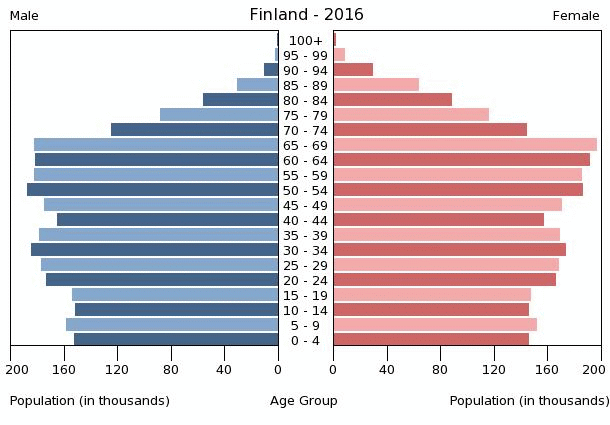I have to say that I was impressed when I read about Jeremy Rifkin and his theory about the Third Industrial Revolution and Zero Marginal Cost society. I would warmly recommend you all to get familiar with the theory and see what you think about it.
But meanwhile this blog is all about ideas that this wonderful theory has awaken in me. Indeed we are living in a time where the third industrial revolution is just around the corner. Internet of Things, renewable energy sources and sharing economy are no longer just theories: Several companies like Nokia, Tesla and Daimler are already making these ideas reality.
Rifkin described three causes for an industrial revolution: New forms of communication, new ways of transport and a new source of energy. In the first revolution those were the telegraph, the steam engine train and coal. Second revolution presented the telephone, the automobile and oil. We have been in that stage a hundred years so perhaps soon it would be the time for the next revolution.
And that is exactly what is happening. We are going to have the Internet of Things (we already have the smartphones and the social networks), soon-to-be driverless electrified cars and renewable energy sources like solar power.
Let's start with the Internet of Things. IoT is basically connecting everything to everything. Connecting devices and data between each other to gather and share more information and data everywhere, for everyone. For example Kemppi, a Finnish manufacture of welding equipment has employed IoT in its welding equipment by connecting the devices into a cloud service where data from welding is sent and later analyzed for business development. This is going to be the new norm in every industry. Finnish network giant Nokia has for instance started heavy investments for IoT and 5G-technologies that are currently tested in the Pyeongchang Winter Olympics.
IoT is going to be closely linked to the transportation as well. For instance, Daimler has already developed a Highway Pilot for its long-haul trucks. The truck has an autopilot which gathers huge amount of data with hundreds of censors from the road (road conditions, weather, traffic) and from this data is able to drive autonomously and set this data through a cloud service for the uses of Daimler. Similarly Tesla has also developed similar systems for its vehicles.
A good example from the revolution in transportation is also the fact that less Millennials (you and me) are considering to actually buy a car for themselves. Why? Because car isn't anymore a product, it is a service. Not only car sharing, but according to the statistics also leases of vehicles have become more common in the past few years in the Nordic countries. People are paying more about the service and not for the car. We got Uber, Osuuspankki in Finland already introduced it's car sharing division and the car sharing idea is also on Elon Musk's Masterplan part deux.
But I have to ask, what is the reason behind this technological advancement? Making things easier for us?
No. It's about the money. Yees the stuff that they all want.
When devices themselves gather, send and analyze the data, you don't have to pay your analysts.
When trucks drive themselves, you don't have to pay your drivers.
When you can gather energy from the sun, your energy production has zero marginal cost.
The industrial revolutions have been about increasing wealth and efficiency in production of goods and services. The next industrial revolution will do the same; increase efficiency by reducing costs and create more wealth (but to who).
This introduces the idea of zero marginal cost society. According to the theory of firm, a firm with perfect competition produces where the marginal cost equals the marginal revenue. When energy can be produced by just with the fixed costs, like buying a solar panel, the energy production has zero marginal cost. When firms, households and corporations demand more energy, the marginal costs of their production don't rise from this. This would also suggest that the services and goods available would become more cheaper, thus more available for people all around the world. This is what technology is all about.
It is absolutely such a lovely idea that I almost want to cry. But those tears of joy will turn into tears of bitterness when I realized a problem: The market economy.
The market economy works in a following way: You need apples to eat and you have more than enough apples for yourself. Your neighbour comes to ask you if he could get 5 apples from you. Now you start to think about your utility: Do you get the same utility from 10 apples than from 5? Probably not since more is always preferred than less and thus you would need something in return, for example pears.
Same in energy production. If you produce solar power for yourself and a corporation wants to take some of that energy for their use, you wouldn't give it for free since you need the energy for your heater and phone charger. You would demand payment from which you can buy or produce the same amount of energy that you sold from elsewhere. This is how the world works.
So as long as everyone don't have the option to become energy independent, the production doesn't have zero marginal cost. But maybe in some point of the future... at least Tesla is introducing solar panel rooftops and Powerwall for your home and car to become energy independent.
Don't get me wrong, I don't want to be pessimistic about this. It is certain that the third industrial revolution is in its way but I'm not yet sure about the consequences. It will increase aggregate efficiency and increase wealth, but will it create our society a zero marginal cost society? I'm not that sure. A sure thing is that several professions and industries will disappear sooner than we think.
By the way, you might have noticed that I mentioned Tesla and Elon Musk in this blog for a couple of times. I don't think it is a coincidence that Musk the supervillain studied at the Wharton Business School where Jeremy Rifkin taught for 15 years.
Text:SW
Pictures don't belong to me











